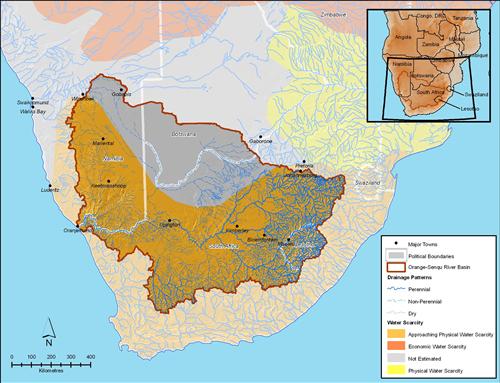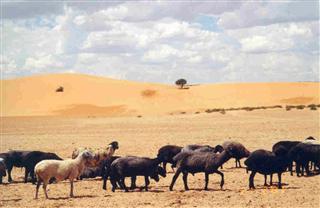Water scarcity compares water demand (or water withdrawal) and water availability to estimate the amount of water left over when all demands are fulfilled by available water. It is normally expressed as a ratio (water withdrawal/water availability) and environments with a ratio of 0,4 or more are considered to be in a state of severe water scarcity. Water Scarcity is an essential cross-cutting vulnerability issue that should be considered in all development initiatives.
The UN World Water Assessment Programme defines water scarcity as:
-
Physical water scarcity
-
Economic water scarcity
Physical water scarcity means that water demand or withdrawals exceed or are close to exceeding water availability. Economic water scarcity means that even though water may be naturally present, human, institutional and financial issues have limited access to clean water.
This can be seen in the following map from the United Nations World Water Development Report 3 (World Water Assessment Programme 2009).

Water scarcity in southern Africa.
Source:Hatfield 2009, after World Water Assessment Programme 2009
( click to enlarge )
 Southern Botswana receives very little annual rainfall. Source:Department of Water Affairs Botswana 2001 ( click to enlarge ) |
